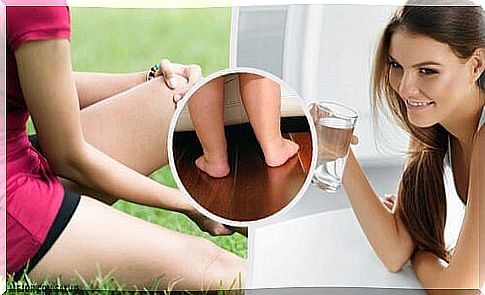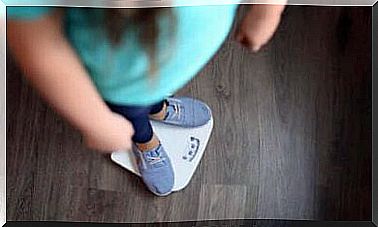Five Signs That You Have Water In Your Body

Do you think that your body can hold fluids, but you do not know the signs of water in your body?
Water in the body, or edema , is a pathological or non-pathological condition caused by an excessive accumulation of fluid in the tissue.
- When it is pathological, it usually occurs with circulatory problems, congestive heart failure or problems with the kidneys or liver.
- When it is not, it is attributed to a simple dilation of your blood vessels in times when the temperature is higher.
The consequences of edema are:
- Unexplained weight gain
- Swelling in the legs and ankles
- An increase in the size of your stomach area or a decrease in the need to urinate.
Edema is mainly seen in older adults. However, it has also been diagnosed in adolescents.
The condition is more common in women than men, especially for hormonal or dietary reasons.
It also tends to appear during menopause, during pregnancy or when a person has a sedentary lifestyle.
However, edema can be a sign that a person has another disorder, whether in the heart, kidney, liver or digestive system.
How do you know if you have water in your body?
1. Your lower extremities are swollen

Your lower extremities are the first part of your body that is affected by water in your body, so pay special attention to your legs and feet.
First, you will feel fatigue and heaviness in your legs due to insufficient drainage.
2. Thicker ankles
Edema makes the ankles look bigger than normal.
From the time you wake up to the time you go to bed, this part of your body increases in size as the day goes on.
3. Cramps in the legs

When we go back to the legs, you will see swelling in them as well, but sometimes people do not notice it.
A symptom that can reveal that you are retaining fluid is that you have frequent cramps in the area, along with weakness.
4. Flatulence
Another area affected by signs of edema is your stomach. Some people think that they gain weight when they are actually inflated.
Some people go on long, strict diets and think that the increase in the size of the waist is fat when in reality there is a defect in the excretory system.
5. Swelling in your face

The swelling that comes from water in the body can also occur in your face. It is usually visible in your cheeks and eyelids, which will increase slightly in size.
Excess fluids make your face look rounder.
Some solutions
If you think you may have water in your body, you can do the following:
Drink more water

It may seem counterintuitive, but when your body retains fluids, it’s because it’s dehydrated.
Then give it the water it needs. This way, it will not save it unnecessarily.
Eat a low-calorie diet with less salt
When faced with this problem, it is a good idea to reduce the consumption of refined flour and sugar, fat and salt.
- Exercise: It seems like this is a cure for all kinds of problems. Exercise will help you get rid of the extra fluids through sweat and urine, and also get your circulation going. Your exercise routine should last at least 20 minutes a day.
- Drink diuretic tea : Certain plants such as dandelion, fennel, parsley and green tea will help you go to the bathroom more regularly. You can also add vegetables like carrots and cucumbers to your diet, along with fruits like watermelon and melon.
- Eat foods rich in potassium: Corn, cauliflower, bananas and asparagus can also help you retain fluids due to their high potassium content.
- Get rid of your dehydrating drinks: This is especially alcohol, the worst is beer and vodka, as well as coffee. As we explained above, when your body thinks it does not have enough water, it retains fluids.
- Eat more protein : Chicken, red meat, fish, shellfish and legumes are all good options. A lack of protein promotes edema.
- Do not wear tight clothing : It is unnecessarily uncomfortable and will make your body swell a little more throughout the day.
- Do not sit too much: If you sit at your desk all day, get up from your chair for at least five minutes every hour. That way, your body will not go into a sedentary state.
- Stay away from too much heat: Stay away from environments that are too hot, since heat causes dehydration. When this happens, your body retains fluids.









